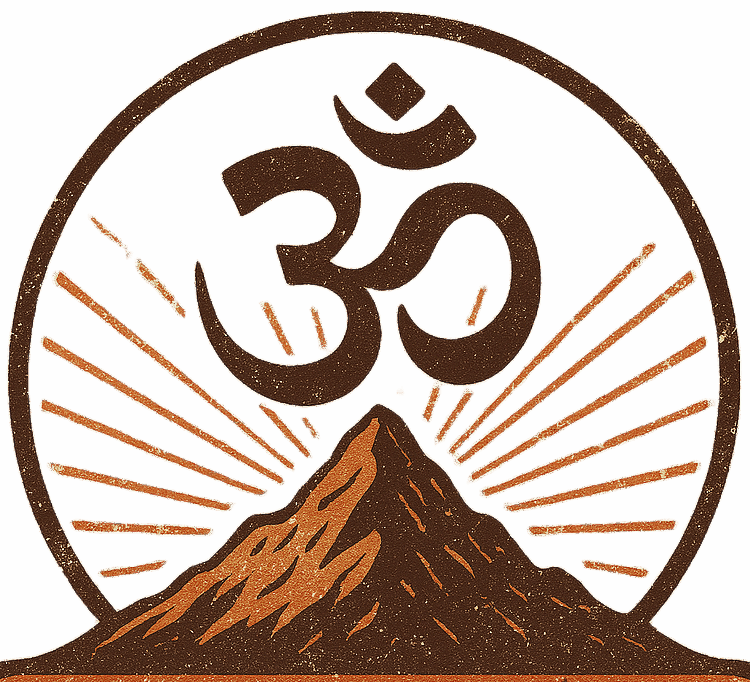Chronicles of Shock and Illumination
In the winters of revolutionary Russia, when streets were still echoing with the noise of collapsing worlds, a small group of seekers gathered in a dimly lit apartment in St Petersburg. Among them was P. D. Ouspensky, already famous for Tertium Organum. He had met a stranger of extraordinary presence—short, dark, eyes burning with what he called “active calm.” The man spoke with a heavy accent and a simplicity that masked precision. “Man is asleep,” he said. “No one knows he is asleep. I come to wake him.”
Those first meetings were austere. Gurdjieff entered, sat in silence until the room grew restless, then began to speak of machines, centers, energies, and the possibility of real freedom. When someone asked what school he represented, he smiled: “School that still alive.” The atmosphere alternated between warmth and terror. He might compliment a listener’s intelligence only to laugh a moment later: “Good head—no steering wheel.” Ouspensky recorded that every phrase seemed to hit the nerves directly, bypassing the intellect. It was teaching by vibration, not persuasion.
When war scattered the groups, Gurdjieff led a caravan of pupils through the Caucasus. They crossed famine-stricken villages, bargaining for food, sometimes hiding from soldiers. Later, Bennett wrote that these hardships were not accidental: “His school existed wherever friction existed.” Each logistical disaster became a test. In Tiflis, he suddenly announced that they would open a café to fund their work. Within weeks the Café Alpestre flourished—pupils cooking, serving, washing dishes—all under his impassive gaze. He told them that commerce, fatigue, and confusion were as sacred as prayer if endured consciously. When the venture collapsed, he only said, “Good—now we start again.”
Arriving in Constantinople, he rented a modest house and resumed classes. An observer described him teaching amid chaos: an old piano in one room, children running, disciples arguing in another. He would stop mid-sentence, order someone to sweep, and continue the discourse as if rhythm of broom were part of lesson. Bennett later realized the gesture’s meaning: the unity of sacred and profane. “No special room for God,” Gurdjieff had said. “Work is prayer.”
The journey to France brought a new theater—the Prieuré des Basses-Loges near Fontainebleau. Those who came expected a monastery; they found instead a building site. Gurdjieff appeared before dawn, assigning tasks without explanation. A writer might be told to mix cement, a pianist to chop wood, a dancer to repair a pigpen. No task suited ego. In the evenings, he served enormous meals, watching how people reacted to plenty after toil. Humility was learned through concrete, hammer, and wine. “Only man who can be king of shovel can later be king of mind,” he joked.
C. S. Nott remembered one morning when a pupil complained of exhaustion. Gurdjieff silently took his place at the wheelbarrow, working until everyone was shamed into renewed effort. Then he stopped and said quietly, “You see, I not ask what I not do.” Moments later he ordered them to continue without him. The episode became legend: compassion expressed through labor, not speech.
Evenings at the Prieuré could change mood in an instant. He might play the harmonium, filling the hall with Caucasian melodies; then, suddenly, he would slam the keyboard and shout, “Enough! Now dance!” Students leapt into Movements, half-dazed, half-ecstatic. Observers said that through such abrupt transitions he trained the nervous system to adapt without losing presence. Each change of tempo was a miniature apocalypse, tearing mechanical continuity to reveal awareness behind it.
When visitors from Paris society arrived, expecting oriental mysticism, he often shattered their expectations. To a fashionable duchess asking about reincarnation, he replied, “Madame, first be born.” The room erupted in laughter, but the remark carried weight: in his cosmology, the soul must be created, not presumed. These shocks—half insult, half revelation—were the signature of his pedagogy. They produced not obedience but consciousness.
Among the residents of the Prieuré were artists and writers: Kathryn Hulme, Margaret Anderson, Solita Solano, and later Katherine Mansfield. Her illness touched him deeply; he cared for her personally, ordering fresh milk and sunlight for her room. When she died soon after, he told the group, “She finish her task. Now you continue yours.” There was no sentimentality, only calm acknowledgement of necessity. Witnesses said his serenity transformed grief into silence of understanding.
When the Prieuré closed and the world again fractured into war, Gurdjieff withdrew to Paris. His body was failing, yet those who met him in the late 1930s and ’40s said his presence had become distilled, more terrible and tender than before. The apartment on Rue des Colonels-Renard filled each night with visitors—Russians in exile, American students, musicians, wanderers. The furniture was simple, the air thick with tobacco and coffee. He no longer lectured; he arranged. Each encounter, however ordinary, was stage and initiation.
Jeanne de Salzmann recalled that one might be speaking quietly with him when he would suddenly bark an impossible command—“Now! Bring cognac! Toast idiots!”—and the whole room shifted from metaphysical conversation to laughter and ritual. The “toasts to the idiots” became his final school. Around a crowded table he named degrees of idiocy—ordinary, super, compassionate, hopeless—and required each person to identify his own. It was both comedy and confession, the deliberate collapse of spiritual vanity. After the laughter subsided he would lift his glass again and say softly, “Now toast to real man—still to be born.” The silence that followed was unlike prayer; it was recognition.
His methods in these years remained paradoxical. To a wealthy disciple he might grant a task requiring humiliation; to a destitute one he would offer a gift of money. A woman once complained of loneliness. Gurdjieff replied, “Be alone rightly.” Another asked how to love. He gestured toward the crowd and said, “Love all—start with the one who irritates.” The advice always struck the mechanical self at its weakest joint, compelling reflection rather than comfort. Even his temper was medicinal. When he shouted, the pupils said, something inside them woke; when he laughed, their fear dissolved into joy.
During the occupation of Paris he became, improbably, a center of quiet charity. Ration cards were scarce, yet his table overflowed. He bartered manuscripts, furniture, anything, to feed others. J. G. Bennett remembered finding him ladling soup with the solemnity of a priest: “Work must continue; world always in war.” The Work, he meant, was inner attention amid chaos. To survive the century’s insanity one had to become conscious of every gesture—chewing bread, listening to sirens, breathing. In those dimly lit rooms, disciples felt that he was transforming despair itself into a form of fuel.
In the late 1940s, the younger pupils who would later carry the teaching—Henri Tracol, Michel Conge, Solange Claustres—saw him daily. He no longer demanded colossal labors; he asked for sincerity. “Every moment,” he told them, “make small payment—attention.” The great shocks of the Prieuré had become subtler shocks of presence. He would sit motionless while conversation rippled around him, and those who glanced at him felt drawn inward, as if his stillness generated gravity. “It was impossible to lie near him,” de Salzmann said; “the least pretense became visible.”
Shortly before his death in 1949, he summoned the group and performed the familiar ceremony one last time. The table gleamed with glasses, the old harmonium stood against the wall. He played a few slow chords, smiled, and said, “Now I go; you continue.” Then he toasted: “To the future man.” The words, Bennett later wrote, sounded like a cosmic benediction, a handing over of responsibility from teacher to humanity itself. Within days, he was gone.
Those who survived him never agreed on explanations. Some called him saint, others tyrant, magician, charlatan. Yet across every testimony—Ouspensky’s exacting notes, Nott’s recollections of labor, Anderson’s memoirs of paradox, Peters’s childhood memories—one pattern recurs: Gurdjieff used circumstance as scalpel. He turned life into laboratory. Where a religion would have offered comfort, he offered confrontation; where a philosophy would have defined truth, he forced experience of it. The outer theatre—cafés, quarrels, banquets—concealed an invisible curriculum whose subject was consciousness itself.
From the Ompyrean point of view these episodes outline a psychology of evolution. The master’s shocks, jokes, cruelties, and generosities were not moral eccentricities but controlled transmissions of energy. Each story records a junction of laws: the descent of necessity meeting the ascent of attention. He demonstrated that awakening cannot be separated from the density of life; that friction, rightly used, is grace. His table, his music, his silences—all were diagrams of reciprocal maintenance, where matter feeds spirit and spirit redeems matter.
In our age, when initiation has fragmented into curiosities and slogans, the chronicles of his encounters remind us of another model of teaching: not doctrine but presence, not belief but experiment. The teacher appears not to grant comfort but to ignite consciousness, to make ordinary acts transparent to higher law. The man who toasted idiots and repaired pigpens embodied a metaphysic: that the divine hides not above the world but within its contradictions, waiting for attention to transmute them into understanding.
Gurdjieff’s pupils scattered across continents, carrying fragments of that method. Some founded schools; others kept silence. Yet in each the shock remained—an ache for authenticity, a memory of impossible demands that revealed unsuspected strength. It is through them that his Work entered the bloodstream of modern spiritual culture, and through their memoirs that we glimpse its living core. Their recollections are not legends but parables of awakening: mirrors for anyone who suspects that consciousness, not comfort, is the true aim of existence.

